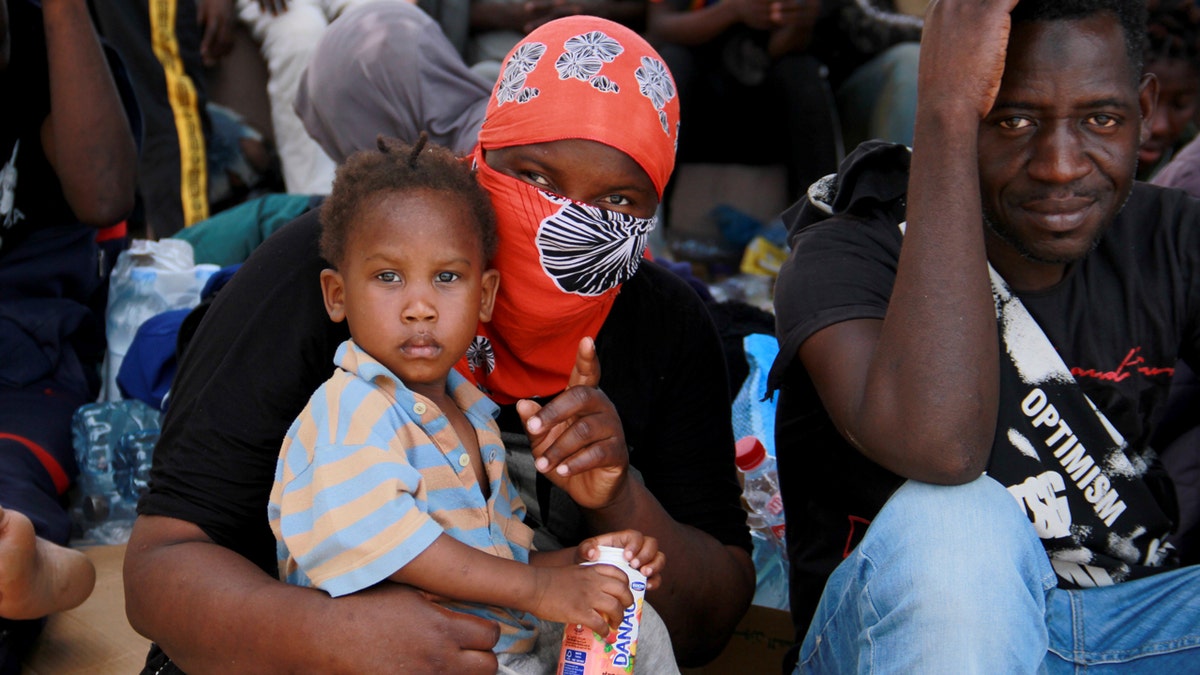Over 500 sub-Saharan African migrants have been returned to Tunisia after enduring a week stranded in a precarious no-man's-land on the Libyan border, deprived of essential resources. Aid organizations reported this development on Tuesday, highlighting the escalating migrant crisis and humanitarian concerns in the region. The expulsion follows heightened tensions and anti-migrant sentiment sparked by a recent killing in Sfax, a key Tunisian port city and a central hub for human traffickers facilitating perilous Mediterranean crossings to Italy.
This incident raises serious questions about the efficacy of Tunisia's border control measures, particularly in light of a recent EU financial aid package aimed at bolstering the country's economic stability and strengthening its border security to curb migration flows to Europe. One tragic consequence of these dangerous sea voyages was a shipwreck off the Tunisian coast on Sunday. The coast guard managed to recover one body, rescue 11 individuals, while 10 others remain missing, according to the Sfax prosecutor's office.
The plight of these migrants trapped in the border region has garnered significant attention from international humanitarian organizations. A migrant from the Ivory Coast, who entered Tunisia legally in 2019, recounted being forcibly removed from his home in Sfax along with approximately 600 others in early July. He alleges mistreatment and assault by Tunisian authorities during their transfer to the border area. His account, shared with the Associated Press, describes harrowing conditions, including being beaten and witnessing the harassment of women in the group. He also claims Libyan border security fired warning shots to deter the migrants from crossing.
As of Tuesday, he and about 100 others have been relocated from the immediate border area to the inland Tunisian town of Medenine, where they are sheltering in a courtyard amid scorching temperatures exceeding 104 degrees Fahrenheit. The Tunisian Red Crescent confirmed the transfer of around 500 migrants from the border zone to other parts of Tunisia on Monday. The International Organization for Migration (IOM) reported that 158 migrants were taken to a shelter in Tataouine, while another 353 were moved to public facilities in Medenine. The IOM noted that Tunisian authorities have not yet disclosed their plans for these individuals.

The image above depicts migrants gathered in Sfax, Tunisia, on July 7, 2023, amidst rising tensions following the detention of three migrants in connection with the death of a local resident. Reports of retaliatory actions against Black foreigners, mass expulsions, and alleged assaults by security forces have further exacerbated the situation.
Responding to pressure from humanitarian groups, Tunisian President Kais Saied directed the Tunisian Red Crescent to provide aid to the stranded migrants. Saied has previously faced criticism for inflammatory remarks targeting sub-Saharan African migrants. On Monday, he denied allegations of mistreatment, instead blaming human traffickers for attempting to destabilize the country. He called for collaborative international efforts to address the root causes of the migration crisis, in addition to security measures.
The Tunisian Red Crescent spearheaded an operation to deliver essential supplies to the migrants, enabling them to contact their families. Three individuals requiring medical attention, including a pregnant woman, were transported to a local hospital. Human rights organizations have expressed grave concerns about the migrants' lack of access to basic sanitation, their vulnerability to extreme heat without adequate shelter, and their precarious position between armed forces on both sides of the border.
The IOM is collaborating with Tunisian authorities to ensure humanitarian assistance reaches those in need. They urge Tunisia to uphold the rights and dignity of all migrants and to combat hate speech and xenophobia. The Tunisian Human Rights League has called for the establishment of a crisis center to address the escalating tensions in Sfax. Opposition figures have condemned the government's handling of the situation, accusing authorities of fueling prejudice and carrying out racially motivated deportations. Reports have also surfaced of migrants being pushed back to Tunisia's border with Algeria, where the government has a history of expelling migrants into the Sahara Desert. The Tunisian Defense Ministry has declined to comment on these reports.
Comments(0)
Top Comments